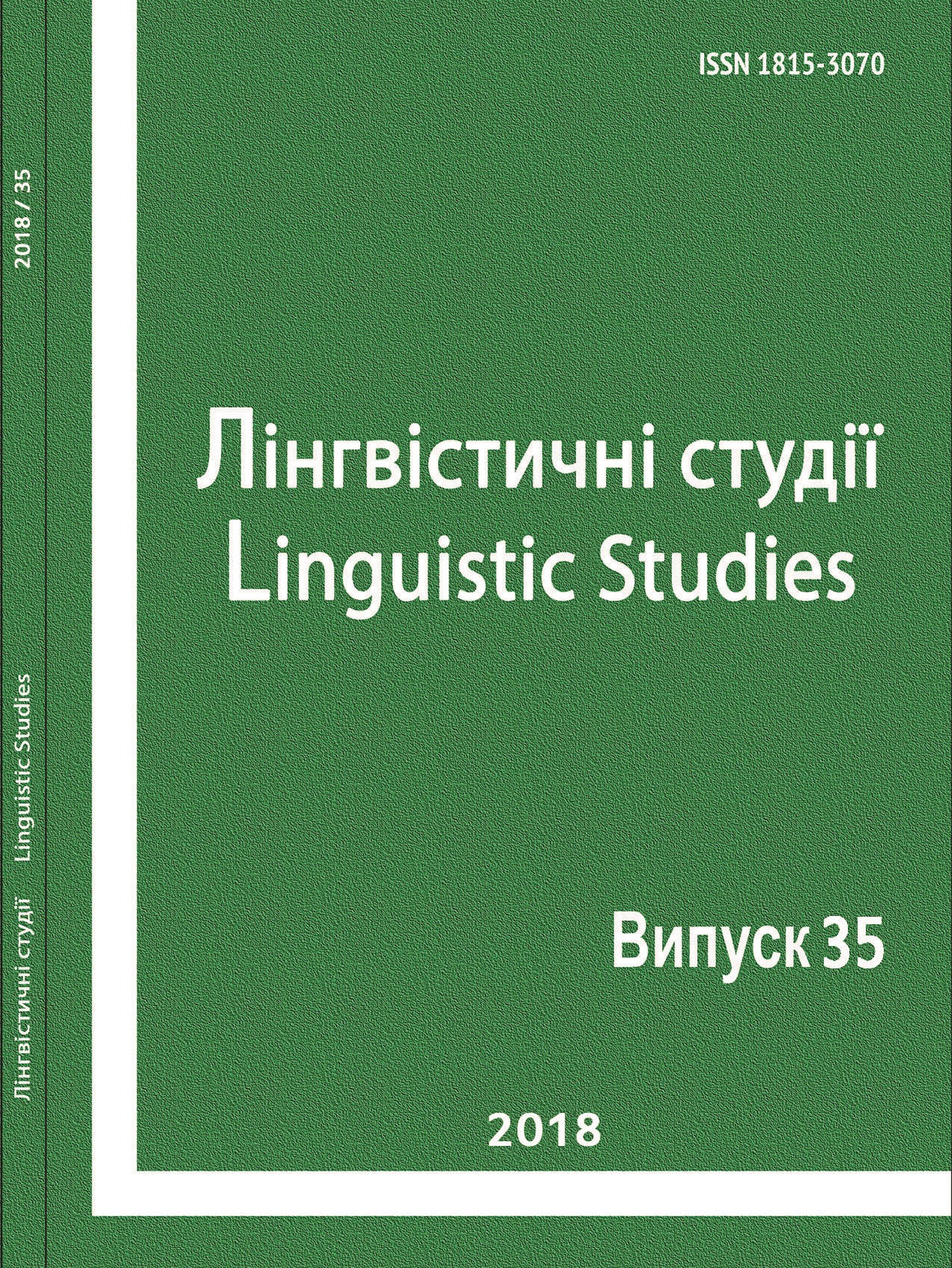Засоби репрезентації концепта “ціна” в україномовному рекламному дискурсі (на матеріалі комерційних текстів).
DOI:
https://doi.org/10.31558/1815-3070.2018.35.11Schlagworte:
концепт, концептуалізація, рекламний дискурс, рекламний текст, ціна, вербалізація, мовні засоби репрезентаціїAbstract
У статті репрезентовано основні підходи до проблеми концепту в лінгвістичних дослідженнях останніх десятиліть; синтезовано різні визначення поняття “концепт”; схарактеризовано концептуальну природу слова “ціна” як ключового складотворчого маркера рекламного дискурсу, визначено його значення та функції у контексті рекламного тексту, описано поширені засоби репрезентації концепту ЦІНА у сучасних рекламних повідомленнях комерційного спрямування.Literaturhinweise
Feofanov, Oleg. “Advertising: new technologies in Russia”. Saint Petersburg: Piter, 2000. Web. 1 Feb. 2018
Horodets'ka, Iryna. “Stylistychni fihury yak zasib manipulyatyvnoho vplyvu v reklami kosmetychnykh zasobiv (Stylistic figures as an instrument of manipulative influence in advertising of cosmetics)”. Naukovi zapysky natsional'noho universytetu “Ostroz'ka akademiya”seriya “Filolohichna” (Scientific notes of national university “Ostrog Academy”) series “Philological” (2015): 72–74. Print.
Karasyk, Vladimir. Yazykovoy krug: lychnost', kontsepty, diskurs (Linguistic circle: personality, concepts, discourse). Moscow: Hnozys, 2004. Print.
Kornyenko, Elena. “Tekst skvoz' prizmu filosofii (Text through the prism of philosophy)”. Znanye. Ponymanye. Umenye. (Knowledge. Understanding. Skill.) 1 (2010): 128–134. Print.
Kravets', Tet'ana. “Ukrayins'kyy reklamnyy tekst v prahmalinhvistychnomu aspekti (Ukrainian advertising text in the paralinguistic aspect)”. Kyiv: Kyiv national university named after T. Shevchenko, 2012. Print.
Kubryakova, Elena. “Yazyk i znanie: Na puti polucheniya znaniy o yazyke: Chasti rechi s kohnitivnoy tochki zreniya : Rol' yazyka v poznanii mira (Language and knowledge: On the way to getting knowledge about language: Parts of language from the cognitive point of view: Language role in the cognition of the world)”. Moscow: Yazyki slavyanskoy kul'tury, 2004. Print.
Popova, Zinaida, and Sternin, Iosif. Notion of “concept” in linguistic studies. Voronezh: VGU, 1999. Print.
Selivanova, Elena. Kohnitivnaya onomasiolohiya (Cognitive onomasiology). Kyiv: Fytosotsyo-tsentr, 2000. Print.
Zalevskaya, Aleksandra. “Psykholynhvystycheskyy podkhod k probleme kontsepta (Psycholinguistic approach to the problem of concept)”. Metodolohycheskye problemy kohnytyvnoy lynhvystyky (Methodological problems of cognitive lingustic).Voronezh: VGU, 2001. 36–44. Print.
Zirka, Vera. “Language paradigm of manipulative game in advertising”. Diss. Dnepropetrovsk, 2005. Print.


